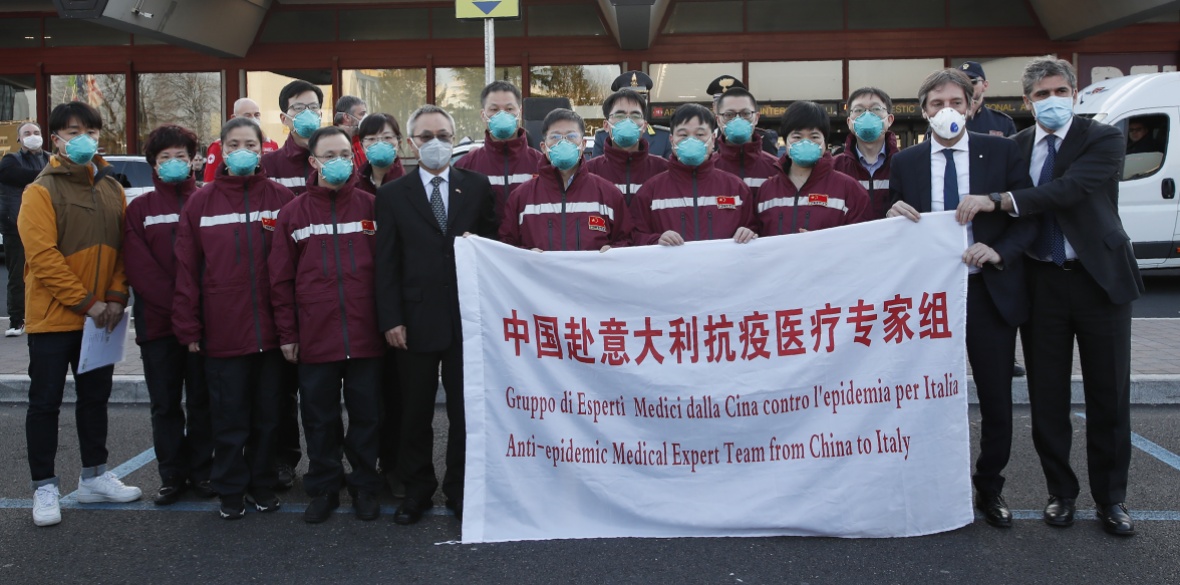This is the last article you can read this month
You can read more article this month
You can read more articles this month
Sorry your limit is up for this month
Reset on:
Please help support the Morning Star by subscribing here
AS CHINA’S battle with the coronavirus goes global, the need to understand China better has become pressing.
Of greatest concern is the worrying acceptance of flawed images of China and the Chinese people, which has led to abuse — racial bullying and even violent attacks — in Britain and elsewhere.
We are now facing a new phase of the “Yellow Peril” scare where demonisation of China is becoming a fact of everyday life. Sinophobia is becoming a part of mainstream discourse, especially in the US post-2016.
It may well get worse due to economic factors and the government trying to avoid blame for the outbreak.
US politicians repeatedly refer to the “Wuhan virus” or the “China plague,” with President Donald Trump leading the way, while media outlets have also stoked hostility, most notably the Wall Street Journal’s infamous “Sick Man of Asia” editorial.
This all may come to haunt us, even after the virus has disappeared.
China’s response to the outbreak, with the extensive quarantine of Wuhan and several other Chinese cities, has also called our understanding of China into question.
It is not just about overt racism: ignorance, prejudice and stereotyping are rife.
The fact is that, with efforts from above and below, China has been able to mobilise its people to meet a common objective unlikely ever to be achieved in a Western society less insistent on collective obligations.
The common perception is of China as a homogeneous mass, with the people possessing little agency, acting more akin to automatons than humans.
This has often gone hand in hand with the fears of being overwhelmed by China, which have contributed to dehumanising the Chinese and further clouding our understanding of China.
China is now sending medical supplies and personnel to assist other countries struck by the virus, including Britain.
European states have expressed their gratitude — Serbia’s president, faced with the EU block on the export of medical supplies, was moved to declare that “only China can help us in this situation.”
Even local Chinese communities are making efforts: a Chinese restaurant owner in Brighton promised to donate 500 masks to demonstrate that the Chinese are here to help as well as to counter the negative stereotypes of Chinese during the outbreak.
Italy and Spain and many other countries are now adopting a response that is more akin to China’s than the US, and even Britain has now moved in that direction.
Doctors from Wuhan claim that Europe has been making many of the same mistakes as the Wuhan government.
Only by understanding and learning from both the successes and failings of China’s handling of the virus, can we be better prepared to tackle it.
As much as the blatant racism of President Trump and the WSJ is deplorable, it is also divisive and dangerous.
International co-operation is desperately needed — co-operation on research to develop a vaccine; co-ordination to manage the damage to the world economy.
The World Health Organisation has praised the effective measures taken by China, calling on the world to learn from the country’s enormous sacrifices made to stop the virus from spreading to the rest of the world.
China itself is calling for joint efforts to minimise the spread of the virus, improve global health governance and help developing countries.
Through their sacrifices, the Chinese nation and Chinese people have bought the world time to prepare for the inevitable arrival of the virus.
This should not be squandered on cynical politically motivated slurs aimed at accumulating cheap political capital or lost in ignorance of China.
We do so now at our own peril. It is time to confront and dispel the common myths about China.
By seeking unity at this time of need, the sacrifices of the Chinese people will not have been in vain.
This article is a reprint of a statement issued by the Society for Anglo-Chinese Understanding council on March 28. For more information visit sacu.org.










